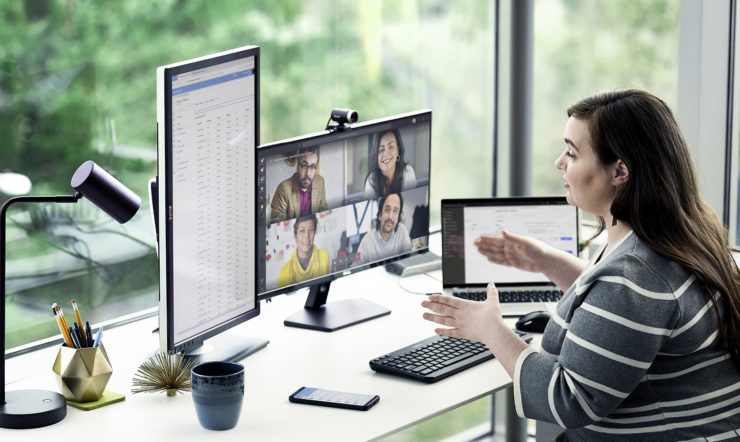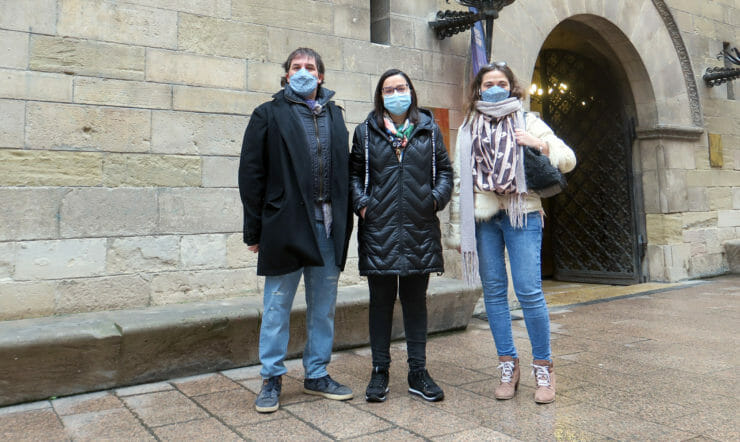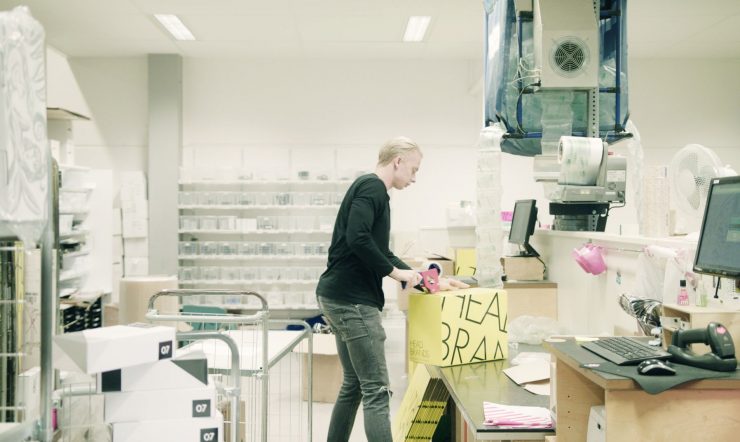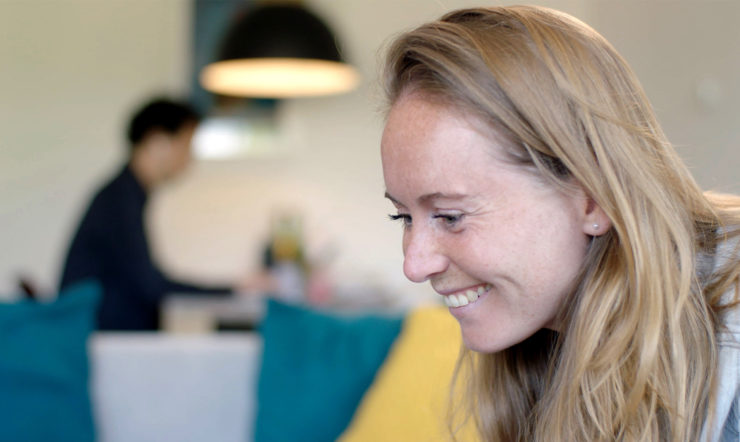“A lesson for us during this crisis, has been that new technology doesn’t just change how you work – it also changes people and culture, which is something you have to support everyone through.”
Director of Accountability at The Association of Universities in the Netherlands (VSNU), Reinout Van Brakel, is talking about the instrumental role technology played in helping Dutch universities adapt during the 2020 COVID-19 outbreak.
When social distancing measures forced universities to close their gates, VSNU had to figure out how to ensure board members from each institution could continue to communicate daily on urgent issues and agree on an aligned crisis response.
With physical meetings off the table, the organization had an immediate need for remote-working tools – a solution that IT partner SURF, the collaborative organization for ICT in Dutch education and research, helped implement in just a single weekend.
This allowed university life to continue with minimal disruption when the new week began, an achievement that SURF Program Manager, Andres Steijaert, is very proud of. “We felt proud that we were able to do this so quickly and help VSNU and the universities adapt in such a short timeframe.”
A united voice for universities
VSNU is the collective voice of 14 Dutch universities. It helps support and promote the shared educational and societal goals of each institution.
A key part of aligning these collective ambitions is having a close relationship with university board members, which VSNU maintains through regular meetings and two group assemblies each year.
To help improve communication and file sharing between these universities, VSNU migrated to the Azure Cloud and Microsoft 365 in 2019 with help from SURF – as part of a national effort to facilitate digital transformation in education and research. Although tools like OneDrive and SharePoint were quickly adopted within VSNU, board members of the 14 universities still struggled to communicate through one common channel.
“We ran some training days, but everyone was still using these tools as desktop applications,” says Van Brakel. “The third-party video-conferencing we tried to implement also didn’t really take off. That was of course, until COVID-19 happened.
“Suddenly we needed a quick solution to keep everyone connected – and as we already had experience using Microsoft Teams at VSNU, we contacted SURF to roll it out across our entire university network.”
An immediate need for video conferencing
Once the first COVID-19 cases had been confirmed in the Netherlands, VSNU made the quick decision to move to remote working through Microsoft Teams – with regular lunch meetings to keep everyone updated internally and a dedicated crisis team to help support the 14 universities.

“We scheduled a crisis meeting every day in the first weeks through Teams, which needed the trust and support from the university secretaries to get that done,” says Van Brakel. “The secretaries are highly-skilled and run the day-to-day lives of university board members, but are used to a certain way of working – so getting them on board was essential.
“If the board members wanted to use another platform or avoid video calls altogether, these secretaries would make it happen,” he adds. “We needed to convince them that Teams would make organizing these meetings easier and reassure them it was a secure and reliable solution.”
While this presented a high-pressure situation for VSNU to keep these universities in constant communication, a rapid adoption of Microsoft Teams was a challenge that SURF were ready for – thanks to some forward-planning they had made, when COVID-19 first came about.
“We had already contacted Microsoft to help us scale up our capacity, as we expected our member institutions would need extra support,” explains Steijaert.
“These universities were in crisis-mode, so we needed a simple and secure conferencing platform that would just work across different devices with participants from VSNU and the 14 universities. So we quickly worked with Microsoft to get a Teams solution in place and supported VSNU to launch and use this dedicated set-up.”
Adopting a new digital approach
Since moving to Microsoft Teams, the universities have seen a widespread change in behavior, with many people choosing to chat to colleagues via Teams rather than on the phone. This presented an opportunity to expand the platform’s use outside of board meetings – something VSNU wanted the secretaries to feel in complete control of.
“People could plan their own internal meetings through Teams, but to chat to external parties you would need to go through the secretaries,” says Van Brakel. “It meant organizing these meetings was still a big part of their job, which was important to help them embrace this new system.”
This was also supported by a dedicated workflow SURF created for secretaries, helping make planning meetings a simple and straightforward process.
“Normally you would manually press a number of buttons to create the rooms and send out invites,” adds Steijaert. “But with Microsoft’s help, we created a tailor-made, workflow that made it effortless to set-up meetings and send invites through Outlook, with all the required settings automatically managed in the backend.”
With all meetings now hosted through Microsoft Teams, VSNU has seen 100% attendance from board members and also shorter more dedicated sessions, as travelling is no longer necessary and everyone can join instantly.
While this has shown remote meetings can be more productive, VSNU has also tried to recreate some of the social interactions that can help colleagues feel less isolated. An area that Reinout thinks is very important.
“We try to build a social atmosphere so it’s not just formal talk,” he says. “For instance, last Friday every board member chose a colleague or student who had done exceptional work during the crisis, and we all heard about what they’d be up to. It gave a great feeling of belonging to a group.”
Adjusting to a new blended workplace
As universities now begin to reopen and adopt a blended learning approach, Reinout believes there is more potential for how everyone can use Microsoft Teams to adapt to this new normal – where home and the office need to be treated as the same environment.
“We’re adding larger screens to the office so people can have more efficient meetings with anyone working from home,” says Van Brakel. “Now these universities have experience with Teams and remote meetings, hopefully there will be more options to travel less and have shorter catch-ups for more regular sessions.”
For secretaries too, this immediate need to digitally transform has helped bring a traditional role into a new digitally-dependent age – offering more efficient and simpler ways to manage the schedules and daily lives of board members, with full control still lying with the secretaries themselves.
“I think we’ve seen some really positive developments during this period, and now we’re even looking to start managing projects through Teams,” he adds. “We have a network of about 3,000 people who we’re working with on a regular basis, so it would be great to get everyone on the same cloud system so we could share files and work more collaboratively through Teams.”


























